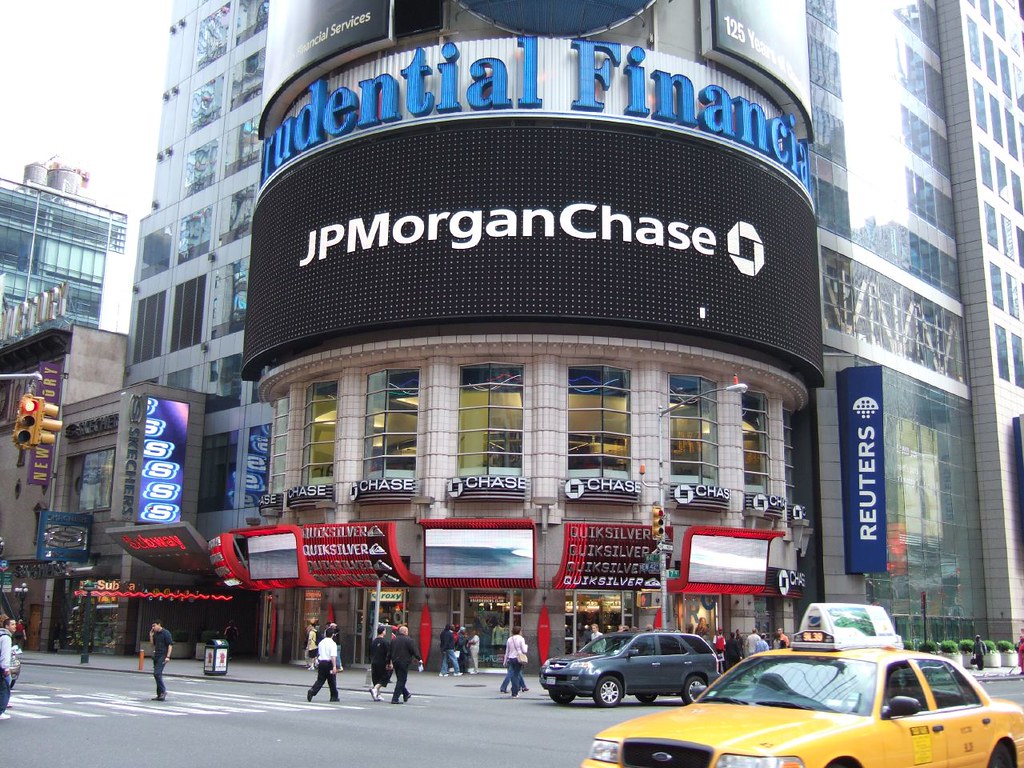All the flaws of Jp Morgan

What is JP Morgan doing?
JP Morgan Chase, the largest US bank, will have to pay a $ 920.2 million fine, the heaviest in history, for protracted market manipulation. The decision was made by the Commodity Futures Trading Commission (Cftc), the US government agency that deals with the regulation of futures and other financial derivatives traded on the commodity, commodity and food markets. Its purpose is to ensure the integrity of the financial sector. According to the ordinance of the aforementioned Cftc, from 2008 to 2016, JP Morgan had "a manipulative and deceptive conduct" particularly in the markets of precious metals and related futures contracts. to Treasury bonds. In fact, the operators, the traders, of JP Morgan have issued hundreds of thousands of buy orders which were then withdrawn, canceled, before their execution. In this way they have distorted the normal trend of supply and demand, inducing other investors to take financial actions based on false evaluations and expectations.
In practice, the JP Morgan system worked in this way: traders issued fake purchase orders, for example, of gold futures contracts, the so-called spoof orders. They thus created a "wave effect", imitated by other operators, to raise the price of derivatives. Then, a moment before withdrawing the orders made, they issued a real order, the so-called genuine order, with which, instead, they sold the future, whose value at that point had risen.
Only for a given segment of transactions analyzed, it was found that JP Morgan would have made profits of over $ 172 million while the other operators would have had losses of about 312 million. The order of the Cftc also states that for years the bank has misinformed and manipulated the control agency itself, thus slowing down any possible corrective and sanctioning actions. JP Morgan was not even able to justify itself and shift the responsibility onto any single "adventurer" employee, as the various managers of the market departments were directly involved.
Only in 2016 the JP Morgan would have started collaborating with the control agency. For this reason, and this is somewhat surprising, the amount of the fine was proposed by the bank and accepted by the Cftc. Furthermore, again for this belated and questionable demonstration of goodwill and cooperation, the agency did not ask for the bank to be disqualified and declared a bad actor and, therefore, excluded from the markets as a "bad operator". Which, and not only in our opinion, would have been a real revolution in finance.
Once again, a convenient favor agreement applies to the too big to fail banks. The fines, while seemingly hefty, are often only a paltry percentage of profits made illegally and fraudulently. Their plea bargain, consequently, always involves the end of the investigations and legal proceedings undertaken. In this regard, however, the Department of Justice and the Connecticut State Attorney are instituting criminal cases for fraud. The Security Exchange Commission (Sec), the American Consob, the federal agency responsible for the surveillance of the activities of the stock exchanges and the protection of investors, is also starting a civil legal case. We will see if they go beyond the imposition of simple fines. There is little to hope for.
Undoubtedly, a profound debate is underway in the United States about the effectiveness of control and repression actions by the agencies responsible for the functioning of the markets. In fact, two directors of the aforementioned Cftc declared that they were not completely satisfied with the failure to apply the status of bad actor for JP Morgan. They requested greater and more effective collaboration between the Cftc and the SEC, which would have the authority to exclude banks and operators considered unreliable from the markets. "Essentially, the two directors said, today the SEC advises the Cftc what the Cftc must advise the SEC, whose regulation then prohibits it from doing", A "circular procedure" that obscures transparency and responsibilities with one waste of resources. It is something that we should also learn in Europe and Italy, about our various control agencies.
The gravity of the JP Morgan affair goes far beyond the case itself. The manipulation of commodity markets has more than financial significance. In these markets, the most important commodities and resources for the economy and for the life of peoples and individual citizens are negotiated: food, energy, and all the raw materials that enter the productive sectors of the real economy. We cannot forget the inflation peaks related to the prices of wheat, rice or oil which, several times in these first twenty years of the twenty-first century, have upset entire nations and impoverished, often to starvation, hundreds of millions of people. On problems of this magnitude one should neither put one's head in the sand so as not to see or use a light hand when unlawful behavior is discovered. They are usually the basis for scandalous enrichments.
Article published on ItaliaOggi
This is a machine translation from Italian language of a post published on Start Magazine at the URL https://www.startmag.it/economia/tutte-le-magagne-di-jp-morgan/ on Sat, 24 Oct 2020 05:39:20 +0000.
